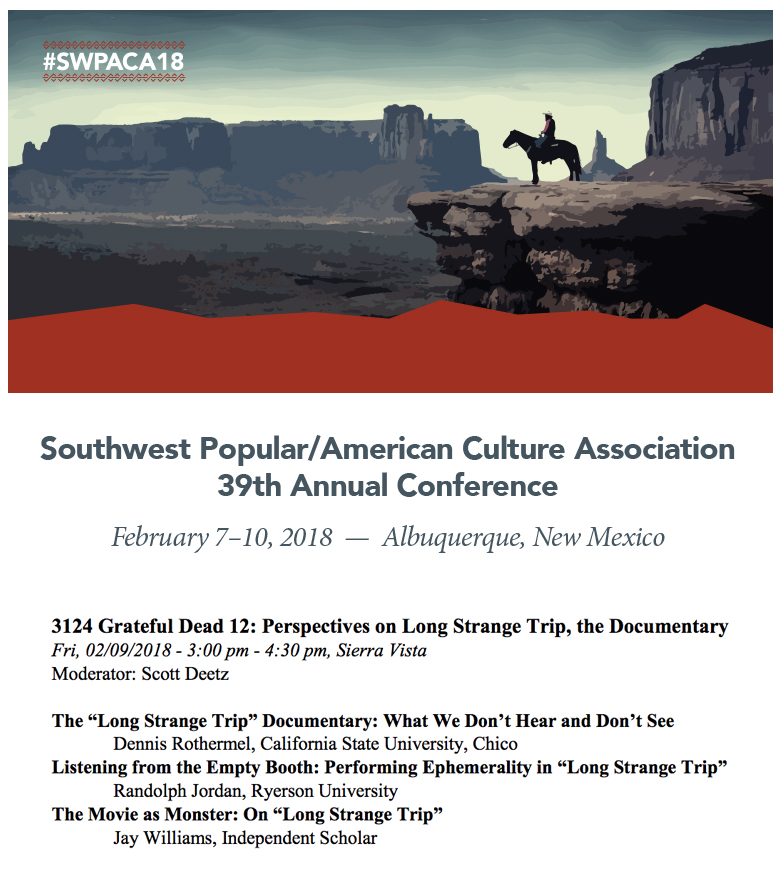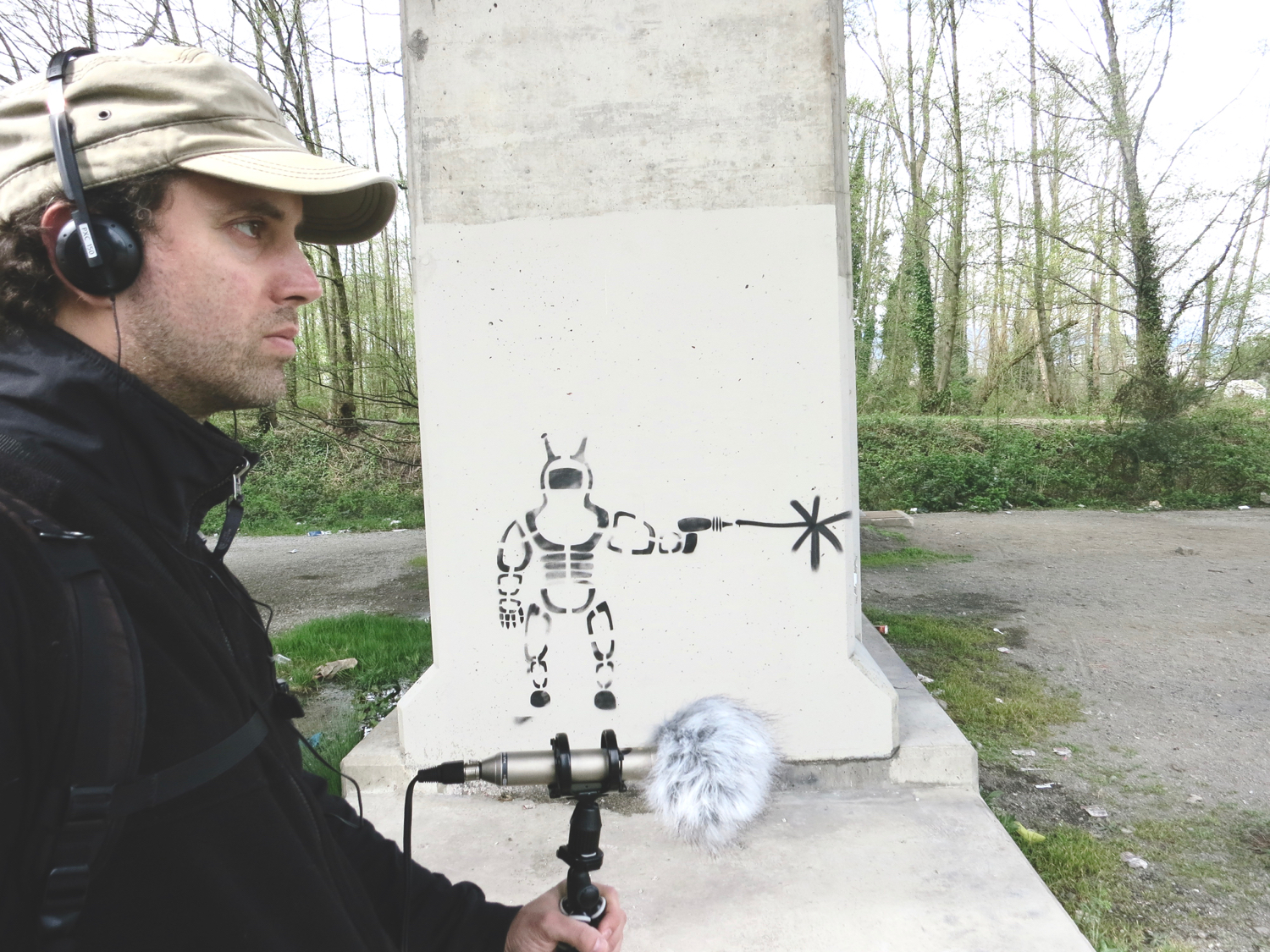Paper Presentation at the Grateful Dead Scholars Caucus, Feb. 7-10, 2018.
At long last I’m making my first visit to the Grateful Dead Scholars Caucus at the Southwest Popular / American Culture Association in Albuquerque, New Mexcio, Feb. 7-10, 2018.
Paper Abstract:
In Amir Bar-Lev’s documentary Long Strange Trip, we are told the story of the recording engineer on the Europe ’72 tour that left his post in the mobile studio truck to enter the venue and witness the band performing one of its best renditions of “Morning Dew.” He had to be there, and he had to get it on tape. He got his cake, and he ate it too: the track came out just exactly perfect enough to make the cut on the final album release. In this paper I argue that, through stories like this, Long Strange Trip is self-consciously about the act of performing the history of the Grateful Dead just as it reports on that history. Sporting the tagline “The Untold Story of the Grateful Dead,” the film capitalizes on a series of underrepresented stories to piece together an image of a band always on the edge of self-destruction, no captain at the wheel to keep it on course, even as it appeared increasingly indestructible as the years wore on. This tension between precarity and longevity is mirrored by the band’s storied relationship with live recording: capturing their notoriously ephemeral performances on tape seems anathema to what they were about as live performers while being essential to forming the Deadhead community experience that made the continuing performances possible. The absence of the “real thing” at the core of the band’s documentation fueled the presence that the band embodied at their shows. I will demonstrate how the film enacts this same tension by organizing itself around the amplification of lost moments of the band’s history of performance, which is, in turn, enacted by the balance that the film holds between performance as subject of the film and performance as the very mode of the film itself. To make my point I will situate Bar-Lev’s reflexive strategies within the discourse of what has come to be known as the “performative” mode of documentary filmmaking, and tie this to issues of sonic representation specific to the “rockumentary” genre to reveal how Long Strange Trip becomes a way of thinking about the Grateful Dead’s history informed by the band’s own performance strategies. The evocative figure of the empty recording booth becomes the marker of the structuring absence at the core of Long Strange Trip: the film’s job is not only to fill gaps in the history of the band and its documentation, but to perform the very idea of the absence at the heart of its media presence that drives the film forward. The booth is empty, but the tape rolls on.

